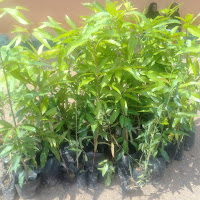Rice Revolution And The Challenges Of Food Importation In Nigeria
By T.H Mayo
 |
| (Pics from Google) |
In November 2017 president Buhari
announced that illegal importation of food is considered a threat to national
security. By this pronouncement, all land borders were closed and local
production of rice was encouraging through loans to farmers and the provision
of farming inputs and dry season farmers were given the necessary attention.
According to the UN Food and
Agriculture Organization (FAO), Nigeria is Africa's leading rice consumer and
one of its largest rice producers. It
describes rice as an essential cash crop for Nigeria, with small scale farmers
accounting for 80% of production but just 20% of consumption.
In one report produced by
Bloomberg on Nigeria’s rice consumption and production says domestic demand for
rice rose by 4% to hit 6.7 m tonnes during the 2017/2018 season. After many
reports show that Nigeria imported 2.6 m tonnes of rice in 2017 along, the
government of the country decided to curb rice importation and designed
programs to ensure that things go well on the new move.
Some steps taking include restricting
access to foreign exchange to importers among others. That idea helped, the
importation has fallen from a high of 644,131 tonnes in 2015 to 20,000 tonnes
in 2017, a decline of 95%.
 |
| (Pics from Google) |
According to the federal ministry
of agriculture, 12.2 million Nigerians engaged in rice farming, with processing
activities undertaken at 1421 rice mills across the country. That given more
Nigerians the advantage of consuming the locally produced rice which expert say
is healthier and good for the economy.
Upon all this the successes
recorded, the challenges of smuggling arose, a lot of awareness was created to
make the citizens to patronized local rice was carried out. And the compliance
is good.
 |
| (Pics from Google) |
In four years many smugglers were
arrested, goods intercepted, but the trend continues. The question is who is
behind it and Why?
We are good with our rice,
millions of jobs were created we cannot allow economic saboteurs to push us
back. By statistics above everybody knew we are going somewhere green. Eat made
in Nigeria to make Nigeria great again.




Comments
Post a Comment